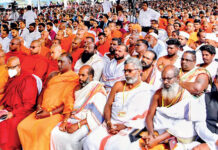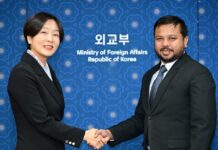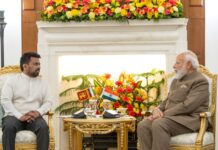By M.M.S.Thaj (MBA, LLM, PGD – in Banking and Finance Law, LLB (Hons).
(Human Rights Activists & Legal Consultant.)
Sri Lanka’s problems come down to the fact that its foreign currency reserves have virtually run dry. The country is heavily reliant on imports but can no longer afford to pay for staple foods and fuel.
The government blames the Covid pandemic, which all but killed off Sri Lanka’s tourist trade – one of its biggest foreign currency earners.
It also says tourists were frightened off by a series of deadly bomb attacks on churches three years ago.
However, many experts say economic mismanagement is to blame.
At the end of its civil war in 2009, Sri Lanka chose to focus more on its domestic markets instead of selling to foreign ones. So income from exports remained low, while the bill for imports kept growing.
Nowadays, Sri Lanka imports $3bn more than it exports every year.
The government also racked up huge debts with countries including China, to fund what critics have called unnecessary infrastructure projects.
When came to power in 2019, President Rajapaksa decided to offer big tax cuts. This means the government now has less money to buy foreign currency.
Mr. Rajapaksa now admits the tax cuts were a “mistake,” and former Finance Minister Ali Sabry has said they resulted in an estimated loss of more than $1.4bn in government revenue.
When Sri Lanka’s currency shortages became a really big problem in early 2021, the government tried to stop the outflow of foreign currency by banning all imports of chemical fertilizer and telling farmers to use organic fertilizers instead.
This led to widespread crop failures. Sri Lanka had to supplement its food stocks from abroad, which made its foreign currency shortage even worse.
An IMF report in March this year said the fertilizer ban (reversed in November 2021) had also hurt tea and rubber production, leading to “potentially substantial” export losses.
Since then, the government has banned the import of a wide range of “non-essential” items.
The government also refused to let the Sri Lankan rupee fall against other currencies, in order to boost exports. It finally did so in March 2022, and the rupee fell more than 30% to 40% against the dollar.
Protests over rising prices and shortages flared up in early April in the capital of Colombo and have grown in size and spread across the country.
People are furious because the cost of living has become unaffordable. Food prices started rising in late 2021, and people are now paying up to 40% more for food than a year ago. This has forced many people to skip meals. There are also fuel shortages and power cuts, and a lack of medicines has brought the health system to the verge of collapse.
Sri Lanka is seeking emergency loans of $3bn to pay for essential imports such as fuel.
The World Bank has agreed to lend it $600m. India has committed $1.9bn and may lend it an additional $1.5bn for imports.
The government is also seeking a bail-out from the International Monetary Fund (IMF), and talks on this are continuing.
The IMF has said the government must raise interest rates and taxes as a condition for a loan, which would make the country’s cost of living crisis worse.
Sri Lanka owes $6.5bn to China and the two are in talks on how to restructure the debt.
A new Prime Minister, Ranil Wickremesinghe has taken charge in Sri Lanka but there are doubts about whether he can restore political stability to a country wracked by civil unrest and on the verge of bankruptcy.
Whereas he has the experience to handle the severe economic crisis confronting the island nation.
Wickremesinghe said after being sworn in. I have taken on the challenge of uplifting the economy and I must fulfill it. The challenges he faces are immense. Sri Lanka is running out of money to import food and fuel. Shortages and surging inflation have led to huge hardships for ordinary people. who has built strong links during his political career with the international community, including India and Japan, and is well placed to negotiate with the International Monetary Fund, from whom Sri Lanka is seeking a bailout.
Wickremesinghe will be a good crisis manager and has very good understanding of the nature of the economic problems and what needs to be done.
However, Wickremesinghe’s lack of political legitimacy poses a problem in the eyes of the people.
In the streets of Colombo, his appointment has not appeased protesters, People have been calling for a system change loudly and clearly and not asking for political games and deals, they want a new system that will safeguard their future.



